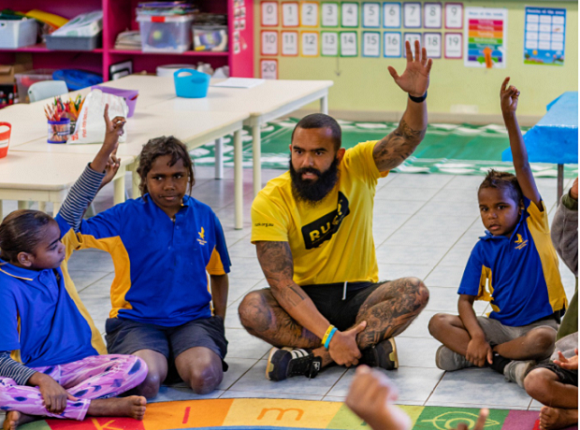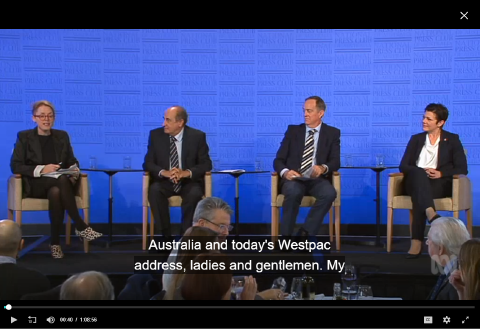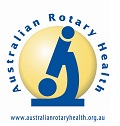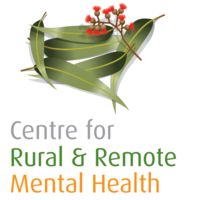|
Mental Health Australia Director of External Relations Lachlan Searle recently had the opportunity to join the R U OK? Trust the Signs Tour, driving some 4,500km from Darwin to Perth. Lach’s guest blog below is a clear example of the challenges we all face in advocating for, and delivering, improved services and outreach across the country… especially if we are to ‘get to zero’.
How can we get to zero in Timber Creek?
In recent months Prime Minister Scott Morrison and Minster for Health Greg Hunt have talked openly about suicide prevention and that they are ‘working towards a zero suicide goal’… and what a great aspiration for the entire nation to have.
So when I joined the R U OK? convoy and stopped off in Timber Creek last week, I started to ask myself the same questions. How can we prevent suicide in this small community? What can we do to help? What are the answers? What needs to change? What will work? What will stop this epidemic? What is culturally appropriate? Why is it happening? Why?
Three hundred people live in Timber Creek in the Northern Territory. It’s an isolated little ‘highway’ town of just a couple of streets, nestled on the Victoria River some 600km from Darwin.
There’s a police station, a school, a modest medical clinic, a roadhouse which doubles as a caravan park for the stream of travellers heading West to Broome, or North to Darwin, and a smattering of houses, and sheds that also house people.
Beyond the tourism and travellers stopping off for a night, or maybe two, to take in the crocodile sightings or a spot of fishing for Barramundi, there’s a serious issue in Timber Creek. A community struggling with the compounding effects and impact of multiple youth suicides.
When the R U OK? Trust the Signs Tour arrived in Timber Creek it looked like nothing more than a petrol station and a caravan park full of people ‘doing a lap’ as they say on the road.
Scratch the surface and when you looked beyond the bowser there was a lot more going on, as we soon found out on meeting the local school principal, who was quick to highlight the serious issue of youth suicide in this community. A school community that is struggling, after four deaths to suicide already this year. A school community with less than 50 students aged five to 18.
That’s right, the numbers are real and when the R U OK? crew stopped in the next morning to talk to the students, it was a powerful message to deliver and one in which every student could potentially relate to.
Enter Kevin Heath, an R U OK? Ambassador and Butchulla man from K’gari (Fraser Island) who was able to sit down with the kids and connect instantly. He talked about how important it is to talk, but also to listen and to ask for help if and when you need it. To look for signs in friends and family, and ask them that simple question ‘are you ok?’
Kev’s impromptu chat and storytelling of his own journey, artistically displayed on his many tattoos, held the kids attention for twenty minutes or more. They were listening and they were looking up to a young role model with a message of hope and healing.
I firmly believe that if Kev could have set up camp in Timber Creek, and stayed there for a year or more, his positive attitude and ability to be role model to young Indigenous kids would have helped that little community ‘get to zero’.
But alas, his skills and ability are needed back home in his work for NSW Health in the Eastern Suburbs of Sydney, a much bigger community, but a community also aspiring to ‘get to zero’ themselves.
Kind regards,
Lach Searle
Director, External Relations

Photo: Courtesy of Ben Houston Photography and R U OK?
NDIS Optimising Psychosocial Support working group
In 2018, Mental Health Australia undertook a project, funded by eight project partners, to bring together, for the first time, the service level data from community based mental health programs to present a picture of how people with psychosocial disability were supported in ‘pre-NDIS’ programs. The project provides a rich and valuable evidence base to augment and support the NDIA’s work to deliver the most appropriate support to NDIS participants with psychosocial disability. Information about the NDIS Optimising Psychosocial Support Project, including the final project report, can be found on the Mental Health Australia website.
This week, Mental Health Australia and the National Disability Insurance Agency collaborated to bring together a time limited working group to consider the project outcomes. The working group includes mental health consumer and carer representation alongside service providers who have day-to-day experience delivering psychosocial support through the NDIS and NDIA officials. The group aims to compare and contrast the evidence presented in the Optimising Psychosocial Supports project with the National Disability Insurance Agency’s evidence on psychosocial services under the National Disability Insurance Scheme (NDIS) in order to help to build an evidence-based picture to help inform the design of future packages of support.
Ensuring the Sustainability of the Australian Health System - Report
Australia’s Health 2040, a cross-disciplinary taskforce (of which I am a member) facilitated by the independent policy institute Global Access Partners, has released a report outlining 19 reform options for the Australian health system to ensure a more sustainable future.
The reforms aim to improve everyone’s quality of life and the equity of health outcomes as well as balancing the system’s cost-effectiveness with the safety, quality and sustainability of service provision.
Read the report here.
National Press Club Mental Health Forum: How To Fix Australia’s Crisis
On Wednesday myself and staff from Mental Health Australia went to the National Press Club where Beyond Blue CEO Georgie Harman, Director of ConNetica John Mendoza & Head of ANU’s Mental Health Research Centre Luis Salvador-Carulla discussed How To Fix Australia’s Mental Health Crisis. It was an engaging and passionate discussion, with the consensus firmly landing on the need for the mental health system as a whole to be reformed, including by addressing the social determinants of health and much more. Each speaker presented detailed and cohesive suggestions for making this happen; the entire forum can be watched here.

|
New support for people with severe mental illness in the ACT
Minister for Health, The Hon Greg Hunt MP, says the Morrison Government has invested more than $1.3 million to help support people living with severe mental illness in the Australian Capital Territory (ACT). Funding will be allocated over four years to the Capital Health Network, to plan and commission new psychosocial support services.
Read more
Support for military families in coping with trauma
Families of serving, transitioning, or ex-serving members of the Australian Defence Force (ADF) who are experiencing mental health concerns following trauma now have a new resource to help them. Minister for Veterans and Defence Personnel Darren Chester said families play a critical role supporting current and former ADF members and it is vital they are supported themselves.
Read more
Call for national leadership: Work on plan to end homelessness must start this year
National housing and homelessness campaign Everybody’s Home, has this week called for work to begin by the end of the year on a bipartisan national action plan to end homelessness in Australia by 2030. The appeal comes as analysis by Homelessness Australia shows investment in social housing will have fallen by $96 million in real terms by next year.
Read more
MindStep gives outpatients strong support
People hospitalised for debilitating mental health issues often go home with little follow up support, except for appointments with a psychologist or self-help. Trials of a new 16-month program offering telephone and support materials to hundreds of outpatients under the MindStep initiative, supported by six major Australian private health care funds, is showing a promising success rate of almost 50% in preliminary findings.
Read more
Aged care employees making a difference to the lives of people living with dementia
This week on Aged Care Employee Day, Dementia Australia acknowledged the hundreds of thousands of people working in the industry across Australia. Dementia Australia CEO Maree McCabe said the day, which serves to thank, honour and celebrate aged care employees, is an important opportunity to recognise the important role they play in the lives of people living with dementia, their families and carers.
Read more
Morrison Government announces funding to help deliver NDIS workforce
Minister for the National Disability Insurance Scheme, Stuart Robert, this week announced the first group of projects to receive funding to encourage NDIS market and workforce growth - helping to deliver the world-leading scheme. Minister Robert said 16 successful projects will share in $10 million in grants from the Jobs and Market Fund (JMF).
Read more
|
|
|
|
On Monday, I will be meeting with Darren Black, CEO of OzHelp.
On Tuesday, Harry Lovelock, Director of Policy and Projects will be meeting with Minister Ruston, as part of the National Disability and Carers Alliance.
On Wednesday, I will be attending Minister Hunt’s National Press Club address, along with Mental Health Australia staff.
Thursday, Mental Health Australia staff will be participating in Mindfulness Based Stress Reduction training, the first in a series of four.
And on Friday, I am looking forward to participating in the launch of the Embrace Project in Melbourne. Embrace Multicultural Mental Health is run by Mental Health Australia and provides a national focus on mental health and suicide prevention for people from culturally and linguistically diverse (CALD) backgrounds.
|
|

Australian Rotary Health is one of the largest independent funders of mental health research within Australia. They also provide funding into a broad range of general health areas, provide scholarships for rural medical and nursing students, as well as Indigenous health students. Australian Rotary Health provides funding into areas of health that do not readily attract funding, and promotes findings to the community. Australian Rotary Health is supported by a number of Rotary Clubs in Australia and have a broad vision to improve the health and wellbeing of all Australians.
Website - https://australianrotaryhealth.org.au/ Facebook - https://www.facebook.com/AustralianRotaryHealth Twitter - https://twitter.com/ausrotaryhealth Instagram - https://www.instagram.com/AusRotaryHealth/

The Centre for Rural and Remote Mental Health (CRRMH), an initiative of the University of Newcastle, conducts high quality research and delivers evidence-based programs to improve the mental health and wellbeing of rural and remote residents in NSW. The Centre focuses on: the promotion of good mental health and the prevention of mental illness; developing the mental health system to better meet the needs of people living in rural and remote regions; and understanding and responding to rural suicide. CRRMH also works in partnership with Aboriginal communities to reduce Aboriginal suicide and suicide related behaviour.
Website - www.crrmh.com.au/
|
|
SANE Forum Topic Tuesdays - August
- Lived Experience Forum: Self-Esteem and Mental Health - Tuesday 13 August 7pm-9pm AEST
- Carers Forum: Caring About, Not Caring For - Tuesday 20 August 7pm-9pm AEST
Read more
TheMHS Conference Spotlight: Aboriginal and Torres Strait Islander Peoples Forum
TheMHS is proud to host a pre-conference forum focusing on the challenges presented to Aboriginal and Torres Strait Islander Peoples in mental health. This year they have invited their speakers to participate in telling their stories around our theme of resilience and hope. As such, they warmly welcome Helen Milroy and Matthew Farry as speakers at this year’s Forum.
Read more
|
|









